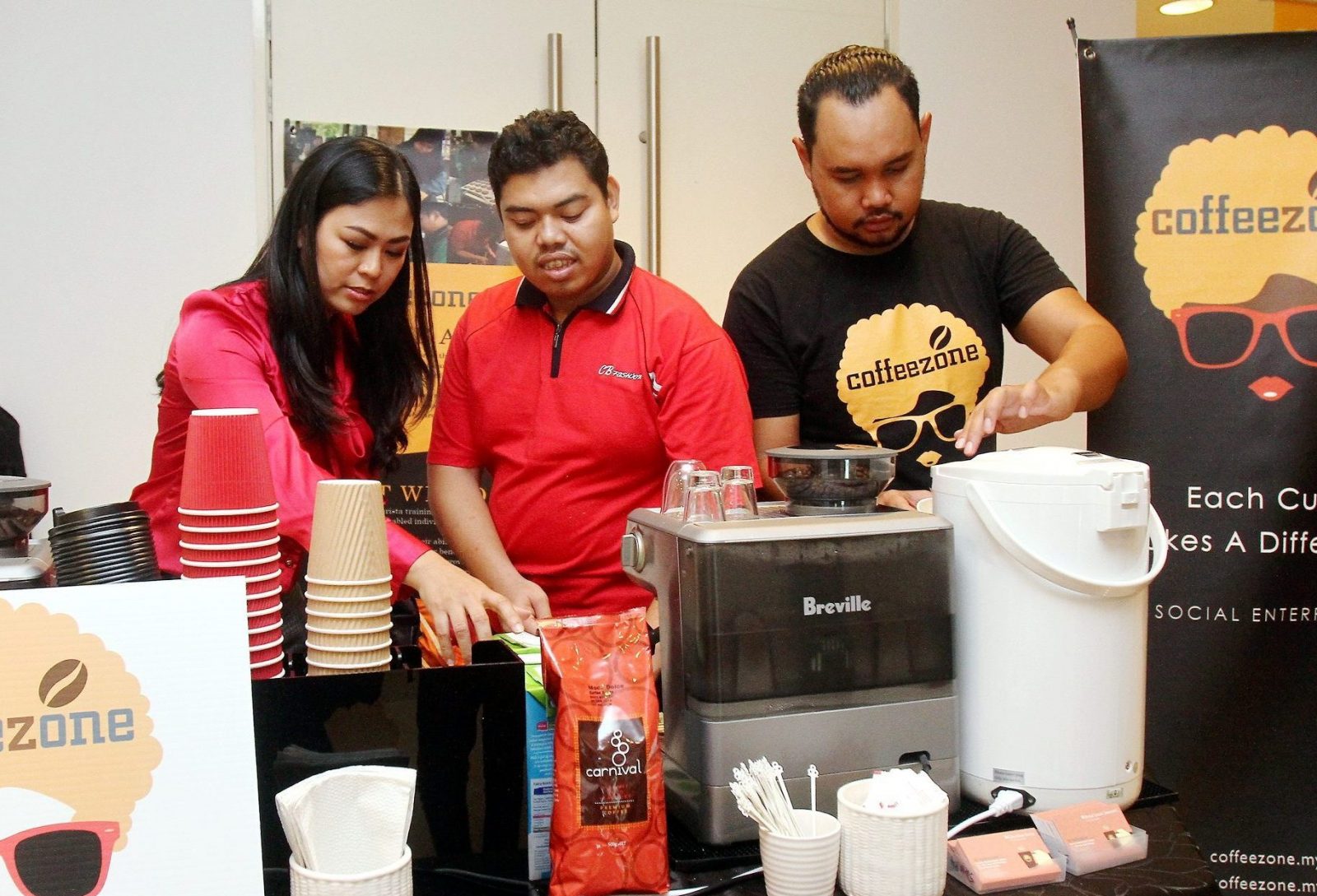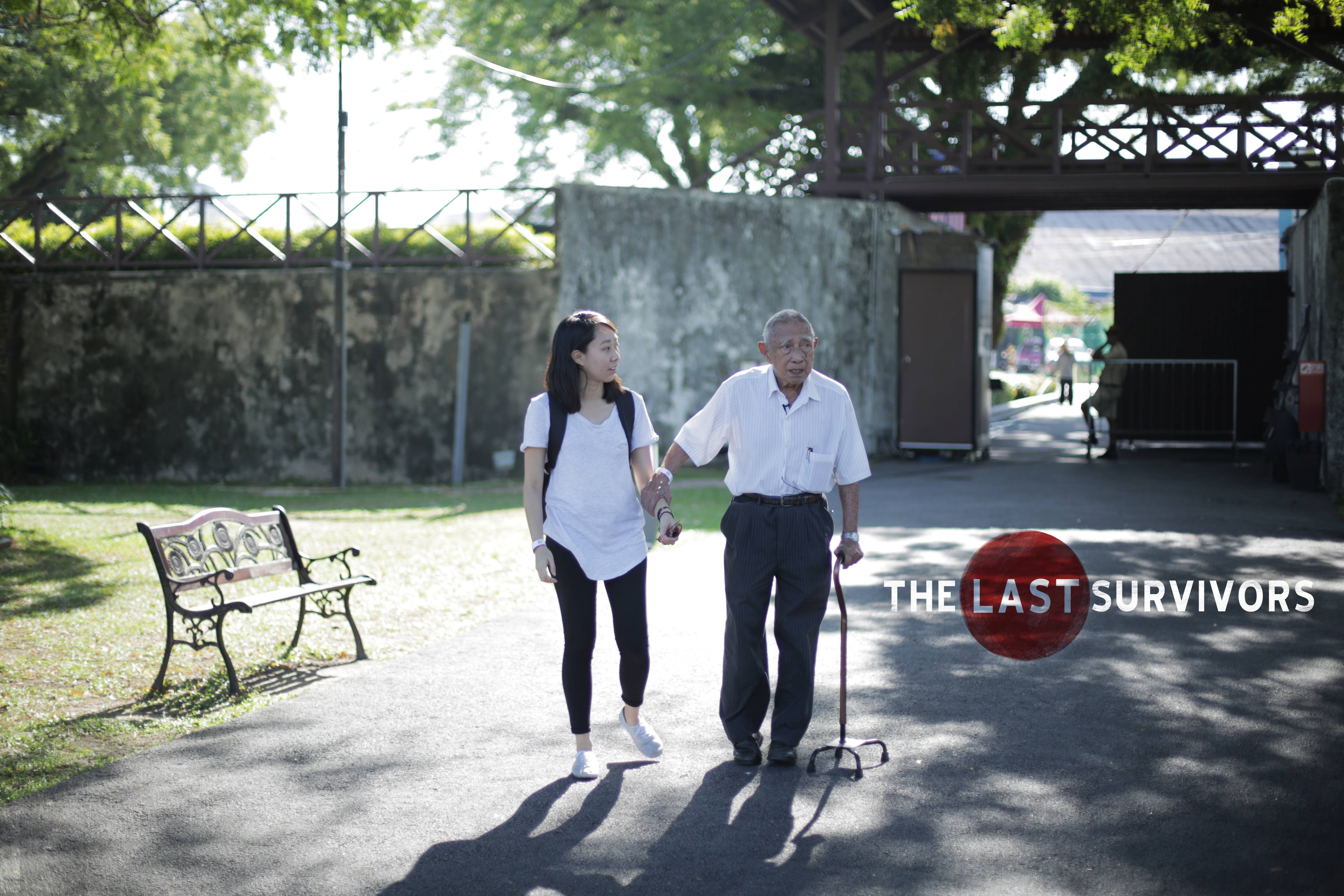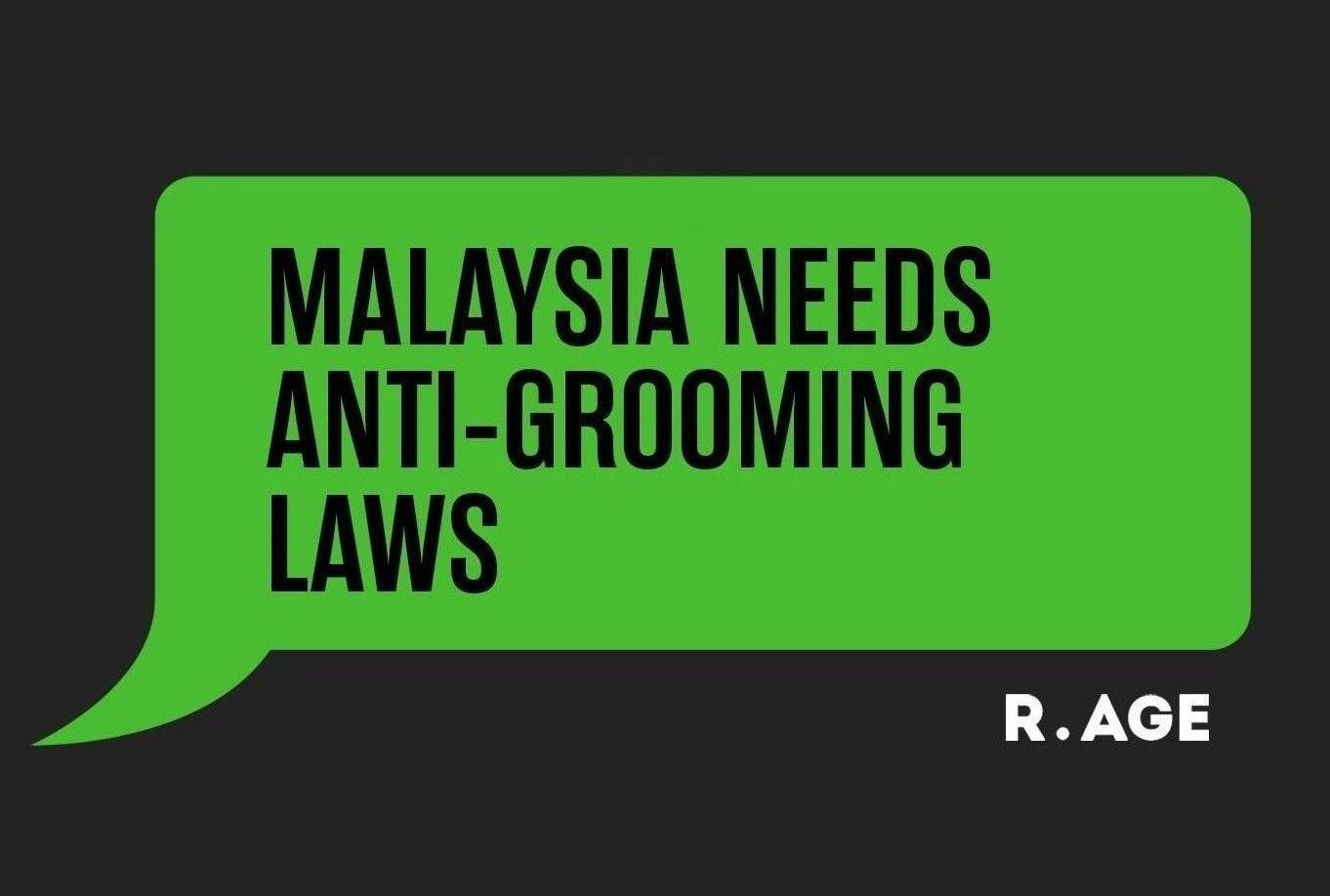CHIA Wen Shin, 25, has turned helping the environment into a business.
She runs an organisation – Greenyards – almost single-handedly, collecting disposed cooking oil and recycling them into candles, bar soap and washing powder, which are then sold online and in a physical store.
Chia is just one of the growing number of young Malaysian women making their mark in the social enterprise sector. And as it turns out, our country is one of the best places to do so.
A 2016 Thomson Reuters Foundation poll showed that Malaysia is the fifth best country to be a female social entrepreneur, beating 40 other countries including Japan, China and Australia. Malaysia also made top 10 in the list of social entrepreneurs overall.
Chia highlighted the country’s multiracial community as one of the factors that have made it easier for female social entrepreneurs to bloom.
“When you stay in a multiracial country, you need to understand and respect different cultures and backgrounds, which is what makes us tolerate and help each other,” she reasoned.
“That’s why we pay more attention to social causes.”

Chia said social enterprises are blooming in recent years due to easy access to the Internet. — HAFIZ NORIZAN/R.AGE
Social enterprises measure success through financial gains and social impact.
A 2013 report by the Harvard Business School quoted US surveys that found women to place more emphasis on social values than men, which makes them perfectly suited for the industry.
Chia, for example, started her research on recycling cooking oil as part of her environmental science degree three years ago.
The findings and her passion for saving the environment stayed with her, even after she started working at a multinational company. Eventually, she quit her job to follow her dream – to turn cooking waste into something usable and eco-friendly.
RELATED: STARTUPS ARE GIVING YOUNG WOMEN A CHANCE TO LEAD
“I wanted to create a sustainable business and help the environment at the same time,” she enthused. It’s this merging of business sense and do-good attitudes that has spurred the social entrepreneurship industry onwards, she added.
“We all have our own causes, but we also want to succeed with our personal goals, career-wise.”
Helpful Malaysians
For social entrepreneurs like Chia, the local scene is a goldmine – both in terms of consumers and causes to champion.
“There is a demand for social enterprises in Malaysia, because we have plenty of people who need help,” said Nur Azlyn Abu Bakar, 27, co-founder of Rocka Atelier. Rocka Atelier started as an initiative to give underprivileged women an opportunity to enter the fashion industry by teaching them marketable skills such as business and ICT training.
They are also trained in sewing to produce fashionable modest clothing – all designed by Azlyn herself.

The clothes produced by Rocka Atelier are made by underprivileged women who learn marketable skills to enter the fashion industry.
At the end of the year, the enterprise, which is managed by Azlyn and her two sisters, produce a social impact report to share how much their customers have helped by buying the products.
Azlyn, whose idea for Rocka Atelier was inspired by US-based ethical fashion movement Raven + Lily, credits her mum as a role model.
“My sisters and I grew up seeing our mum doing volunteer work,” she said with a fond smile. “She taught us the saying ‘If you teach a woman, you teach the nation.’”
What glass ceiling?
The way the social entrepreneurship industry is set up makes it less likely to be biased against age or gender.
According to a 2015 study by the Malaysian Global Innovation and Creativity Centre (MaGIC), a government organisation in charge of empowering the entrepreneurial sector in the country, 64% of Malaysian social enterprises are headed by leaders under the age of 40. Also, the largest proportion of social entrepreneurs are between the ages of 21 and 30.
Globalisation and easy accessibility to information in Malaysia allow young people to be great social entrepreneurs, said Chia, who learnt about recycling cooking oil through the Internet. “Anyone can easily find information and opportunities out on the Internet,” she said.
Amelia Tan runs an Internet-reliant social enterprise, 100% Project, which uses crowdfunding to fund classroom projects.
The idea for 100% Project came while she was working with Teach For Malaysia. She found that teachers in rural areas often wanted to organise fun projects or activities for their students, but often didn’t have the money to do it.
The crowdfunding for these teachers is initiated through their website, but social media also plays a huge role.
“We use social media and online newsletters to help teachers market their projects, and also for the public to get involved,” she said.

(From left) Miza Qadir, Aishah Parkes, Natalie Loo and Tan are enterprising young women who make up part of the team running 100% Project. — Izzrafiq Alias/The Star
While the crowdfunding is open to teachers in any location, the team spends a lot of time communicating offline especially with teachers in rural areas with limited access to the Internet.
Tan, 30, works in a team of six – four of whom are women – all below the age of 30.
“Most millennials are looking for purpose and to do something meaningful in their career,” said Tan. “It translates in the team as everyone is passionate about the cause and believe in what they want to achieve.”
Working in a social enterprise with other young women is great, said Tan, but it’s not something people should pay too much attention to.
“There’s not a lot of emphasis on gender when it comes to this industry in Malaysia, and maybe that is how people can thrive.
“I’m not special for doing this because I’m female. I think of myself simply as an entrepreneur and equal to my male co-founder,” she said.
And that might just be the attitude that brings them to the top. According to the World Bank Group, nearly half of all social enterprise leaders are women, in contrast to only 13% of private sector firms.
The opportunities for career growth and inclusivity in social enterprises make for a more attractive proposition for women as opposed to the more male-dominated traditional businesses.
“We are generally a very inclusive country when it comes to gender, because women are able to go to universities and 60% of graduates are women,” said Ehon Chan, executive director of MaGIC.
“But the number of women participating in the workforce is smaller than men, so the big question is why and what happened to them?”

Chan said innovation within the social sector is moving faster, where women are becoming leaders more easily.
Motherly love
The rigid systems often found in traditional businesses have pushed many women into joining or forming their own social enterprises, said Chan.
Some are pursuing their passion of helping others, and some find traditional businesses make it hard for women to rejoin the workforce after they have children.
He quoted social entrepreneur Amy Blair, who runs Batik Boutique, as one such example.
Blair, like many other women, found it difficult to re-enter the workforce after taking time off to raise her child.
So she started Batik Boutique, which employs women from urban poor communities to create fashion and home accessories from local batik.
The unique mix of an unfriendly attitudes towards working mothers and a talent pool of highly-qualified women may be what spurred so many of them to become social entrepreneurs, but according to Chan, it’s also the improving of women’s rights in Malaysia that got us into the top-five of the survey.
“In some conservative cultures, men are seen as the breadwinner and that takes away a woman’s right to basic things like an education or a career,” he said.
“In Malaysia, we have a range of outspoken, intelligent females in Malaysia ranging from activists like Marina Mahathir to Hong Leong Foundation’s executive director Quek Sue Yian.
“Women have blazed a new trail in social enterprise sectors, unlike in corporate sectors where you usually hear only of men being CEOs.”
This is amazing news, because the more women there are in an industry, the less intimidating it is for other women to enter that industry.
But more than just being good news for women, it’s great for the economy as well.
Statistics show that women are the “ultimate economic accelerators”. A survey by the World Bank Group showed that women reinvest 90% of their income back into the household, compared to men who reinvest only 30-40%.
Strong support system needed
Sixty-three percent of experts polled in the same study believe that there are government policies that support the industry.
Caroline Fong found herself managing a social enterprise almost by accident.
She met her current business partner at 1MAP, an entrepreneurship programme by the Ministry of Finance.
“In that programme, I learnt what social enterprises were. I wanted to do something for the differently-abled, so we met them and learnt that one of their biggest challenges was getting a job,” said Fong.
Her solution to that challenge was CoffeeZone, a chain of coffee kiosks that hire the differently-abled.

Fong (left) employs differently-abled people to help manage her coffee kiosks. — Photos: SHAARI CHEMAT/The Star
But her relationship with government-led initiatives didn’t just end there.
Fong went through the government’s MaGIC Accelerator Program (MAP) where new and upcoming social entrepreneurs go through a four-month programme to gain soft and hard skills relevant to setting up social enterprises.
Participants are mentored by leading industry experts and graduate with skills ranging from the fundamentals of running a social enterprise to impact measurements and even branding.
While these programmes are obviously great, countries like Thailand, South Korea and Vietnam take it a step further – they actually have legislation in place to support social enterprises.
As the Malaysian social enterprise sector is still young, with two-thirds of social enterprises having operated for less than six years, it still needs more investment from the government.
“We received an allocation of RM20 million two years ago, and the smart thing to do is for the government to increase this investment,” said Chan.
“The movement will be self-sustaining once we get momentum in four to six years.”
Malaysia’s high-ranking position in the Thomson Reuters poll show that work done by Chan and his team at MaGIC over the last two years is paying off.
“It’s a big opportunity for us to transform Malaysia and create an economy that centers around young people, especially given that 60% of global youths are in the Asia Pacific,” said Chan. “We need to ensure that they are enterprising, lifelong learners.”
Watch out for these female trailblazers
Alina Amir of Arus Academy
Arus Academy co-founder Alina Amir, 29, collaborated with three other Teach For Malaysia fellows to roll out an education platform that aims to help underprivileged children become young inventors.
The academy, which has come up with prototype projects like a tech alternative to guide dogs and offers classes in coding and programming, also scooped up The Star’s Golden Hearts Award 2015.
Mastura Rashid of The Nasi Lemak Project
Mastura Rashid, 26, founded The Nasi Lemak Project (TNLP) to combat urban poverty by providing a platform for lower-income families to improve their situations.
TNLP empowers underprivileged families to become nasi lemak entrepreneurs by providing entrepreneurial training and a one-year contract with the participant.
On top of that, TNLP is also trying to break the cycle of poverty through education, giving the children of these families free tuition classes.
Lee Swee Lin, Suzanne Ling and Kim Lim of Picha Project
Lee Swee Lin, 23, realised poverty was a huge problem among the refugee community in Malaysia.
Working together with her co-founders, Suzanne Ling and Kim Lim, she developed the Picha Project (PP) to help them generate income.
PP provides a platform for refugees in Malaysia to cater and deliver their own cuisine.
They also organised events to help refugee families connect with each other and improve bonds within the community.
Jayne Kennedy of Epic Homes
Sustainable housing project Epic Homes and its co-founder John-Son Oei have received a lot of attention over the years.
But co-founder Jayne Kennedy has also worked extremely hard for the social enterprise, which works to create homes for underprivileged communities.
Epic Homes started with small projects like repainting houses and building toilets in orang asli villages, but they now have around 4,500 volunteers from across the globe and aiming to ensure all orang asli have sustainable housing within the next five years.





Tell us what you think!